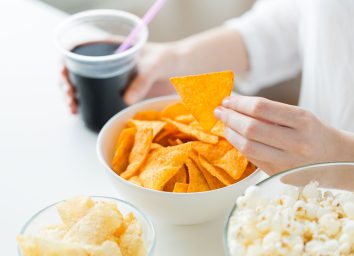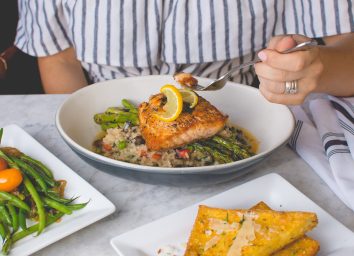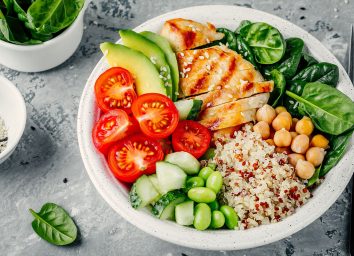The Easiest Ways to Get the Best Sleep During Quarantine
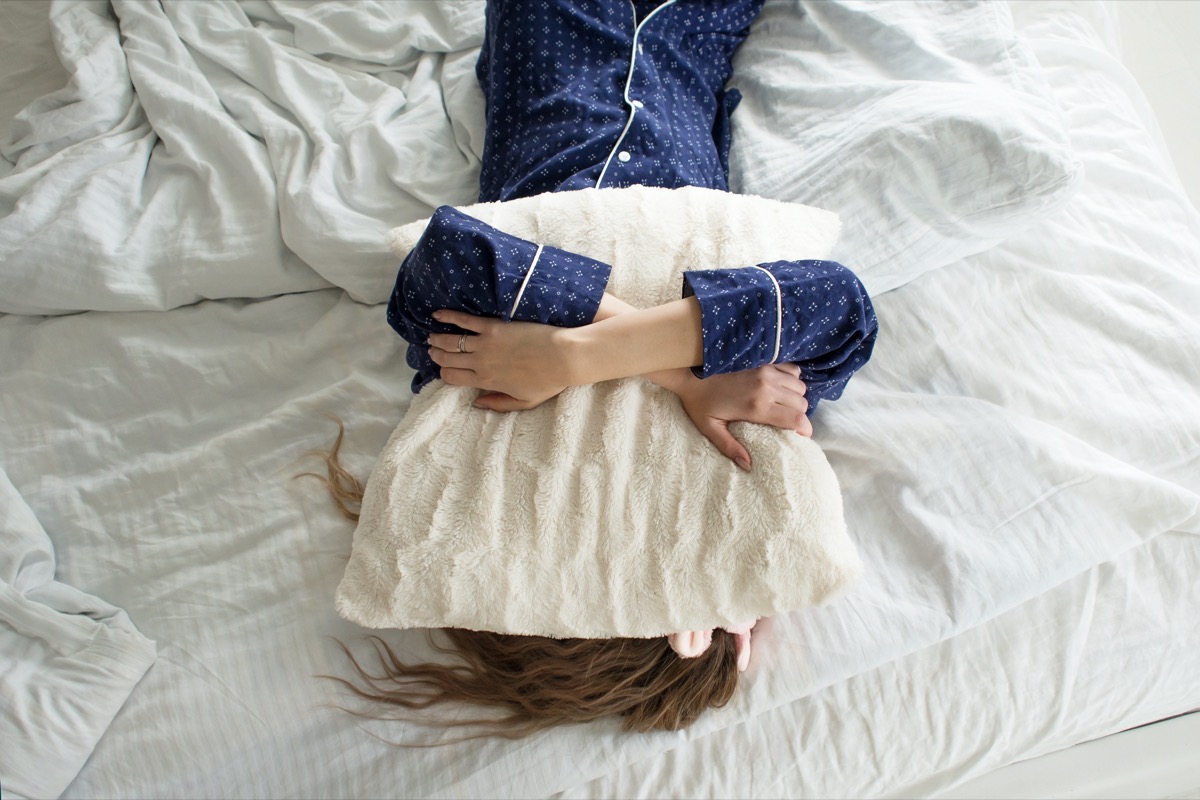
From tossing and turning, not being able to sleep the whole night through, to having nightmares, there are plenty of ways your sleep schedule has been disrupted during this pandemic. Everyone is coping with this quarantine life in different ways, and if you’re suffering from a less than stellar night of sleep, you’re not alone. But we have good news, as exactly how to get the best sleep during quarantine is easier than you may think.
See, even though you might be spending more of your time staying home, that doesn’t necessarily mean falling asleep and getting a solid night’s rest comes easy, as the world is dealing with a highly stressful time. And catching those Zzzs is vital.
“Sleep is important to our overall health, wellbeing, and our immune health. If one becomes chronically sleep deprived, it leads to increases in cortisol (stress hormone) levels, that can cause our immune systems to be compromised, and this can lead to us being more susceptible to getting sick,” says Dr. Nicole Avena, PhD, assistant professor of Neuroscience at Mount Sinai School of Medicine. “Getting a good night’s sleep allows people to rest and restore their bodies. When we sleep, our bodies release growth hormones, which can repair damaged cells. Sleep allows our body systems to reset and become balanced again, a process known as homeostasis.”
Yep, sleep really does help you out. So what exactly can you do to make sure you’re getting a proper night’s sleep? Here are five easy fixes you can make right now, according to Dr. Avena.
Keep perspective.
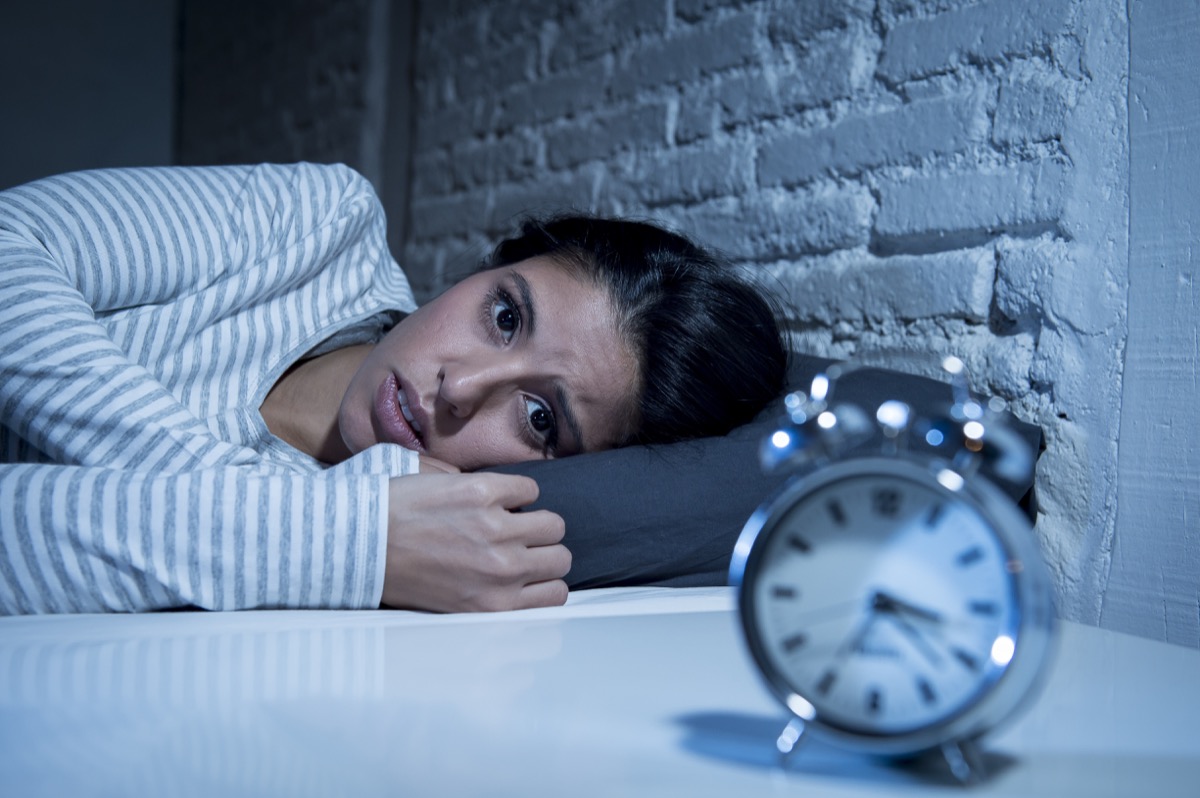
It’s natural to feel some stress right now, but there are ways to channel these thoughts so they don’t keep you from being able to fall asleep at night.
“Many people are in a panic and anxious over the future of the health of their loved ones and the economy,” Dr. Avena says. “When someone is stressed, it can interfere with their ability to naturally fall asleep. This might mean that they are logging fewer hours of sleep than necessary in order to stay healthy. It also might mean that they are resorting to means to fall asleep that are unhealthy. Try not to look too far into the future, and focus on what you can control now. Use problem-focused coping strategies, and avoid using emotion-focused coping strategies.”
Try to stay in a routine.
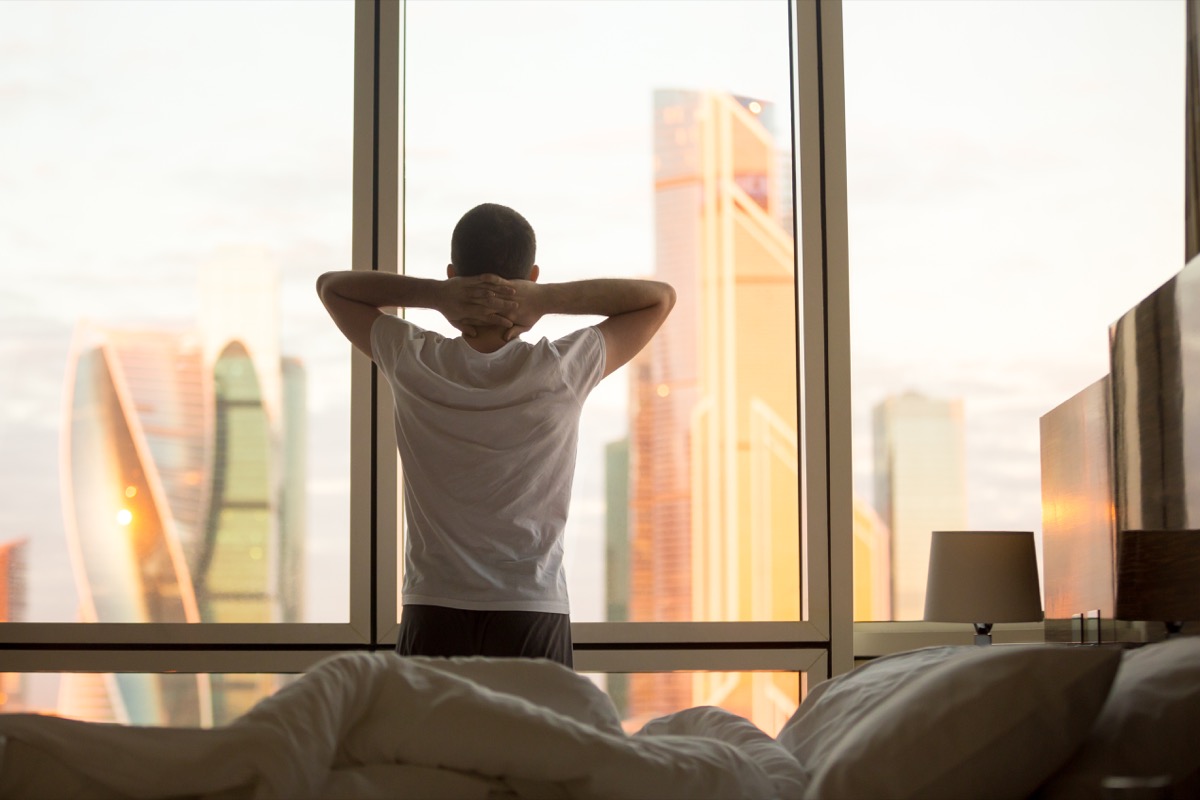
Everyone’s day-to-day has been thrown off course, and while you might not be waking up and heading into the office right now, you still want to keep things as normal as can be for yourself.
“Being at home all of the time can lead to a disruption of our health routines, with many people staying up later now because they don’t have to get up so early for work,” Dr. Avena says. “Try to adapt to keep on track. If you used to go to the gym in the morning, get up and go for a jog [if that’s possible.] If you used to meet up with friends for a walk in the afternoon, get them on a group-call. Try to keep up with eating [regular] meals and prepping healthy foods. And lastly, try to go to bed at the same time each night.”
Ditch the wine.

Sorry to disappoint those who love to unwind with a glass of vino, but you might want to hold that thought if your sleep schedule has been off.
“Alcohol is the worst thing for your sleep. People have the false sense that it will relax them, but it is actually a depressant,” Dr. Avena explains. “It also is a severe disruptor to sleep, and can cause you to walk up at multiple times in the night and now get proper rest.”
Leave your phone in another room.
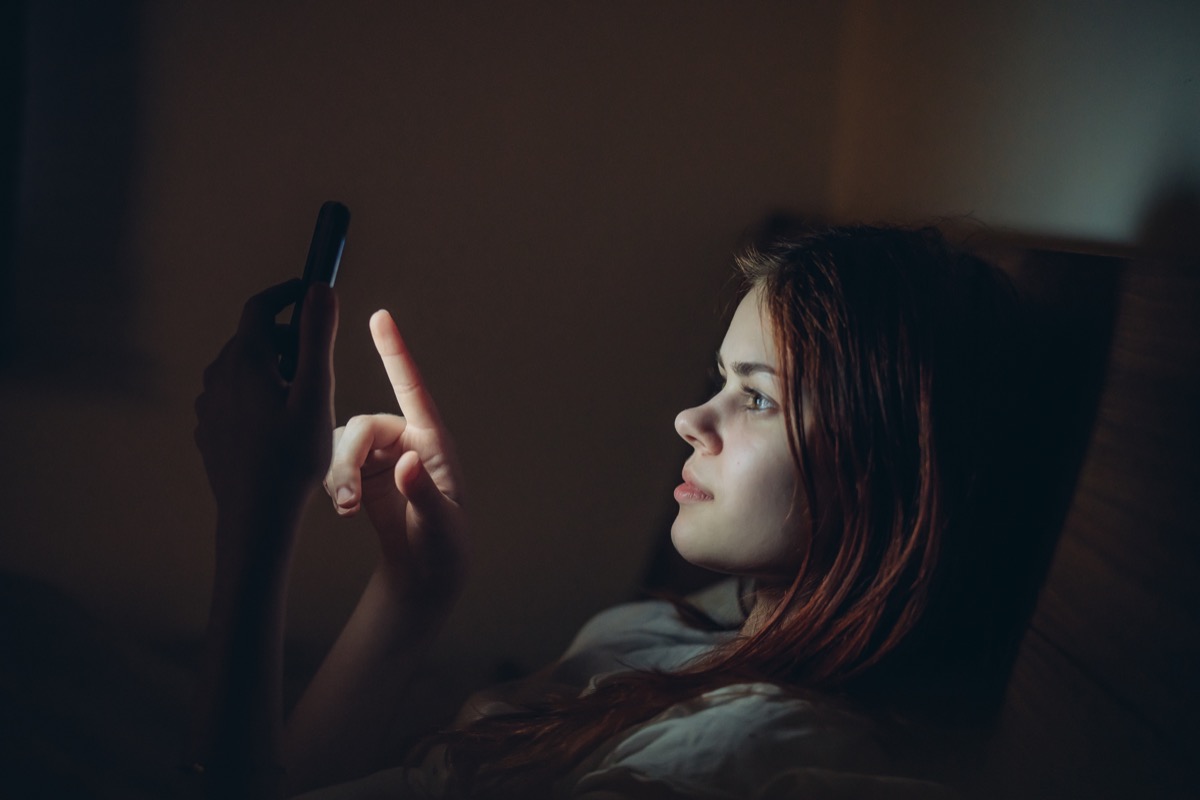
It happens to all of us far too often that we end up sitting in the dark scrolling on our phones in hopes that will help us drift off into sleep. But it’s actually having the opposite effect.
“The light on our screens causes disruptions on our hormones that can lead us to have a harder time falling asleep,” Dr. Avena says. “Try to avoid looking at your phone for at least 30 min before bedtime, and leave it in another room so that you aren’t distracted by texts or alerts that can wait until the morning.”
Consider taking a supplement to help you fall asleep.
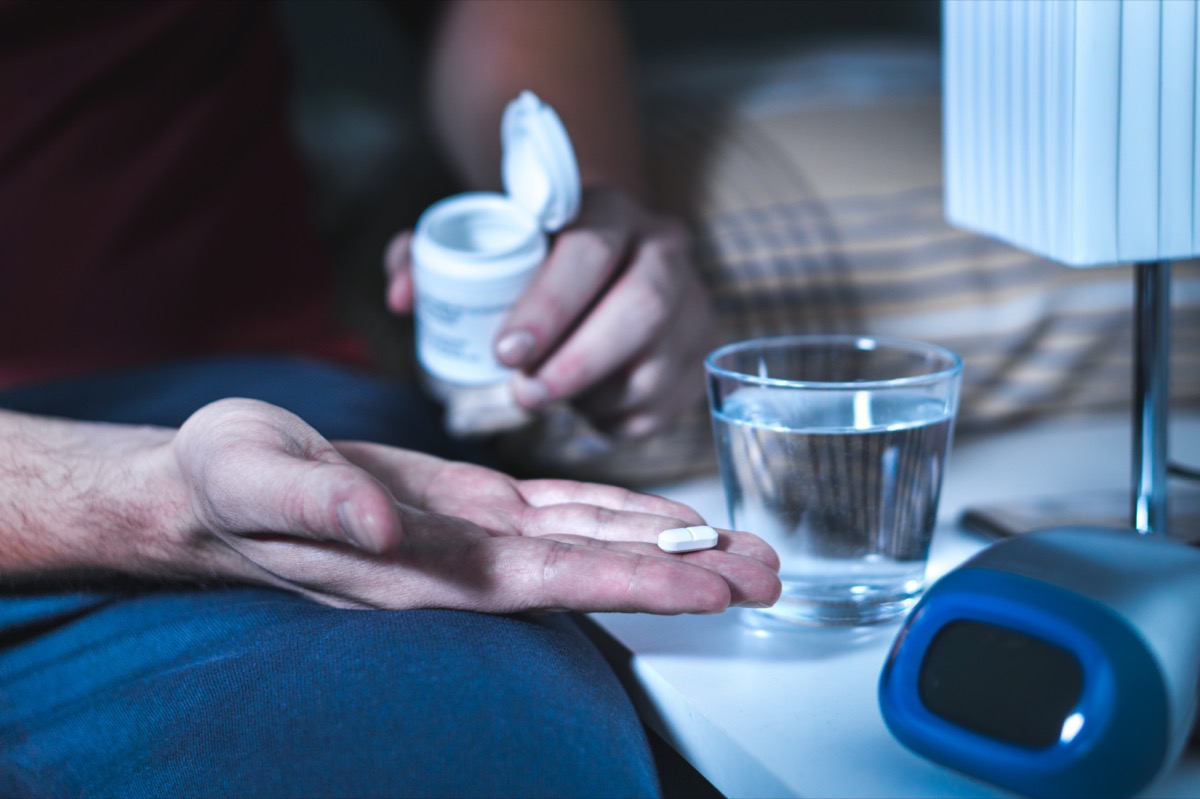
If you’re really struggling, there are natural supplements you can take that can safely get you off to bed.
“Consider taking a supplement to help you fall asleep: Melatonin is a natural hormone that our bodies produce to help us fall asleep, but when we are stressed it can cause disruptions to its function. You can try a melatonin supplement, like vitafusion gummy vitamins Max Melatonin, or a sublingual version of melatonin, like the one by frunutta, to help you to fall asleep,” Dr. Avena suggests. “Unlike sleeping pills, melatonin supplements are not habit-forming.”
And in order to give yourself the best shot at a restful slumber, you’ll want to avoid eating these foods that will keep you up at night, too.
